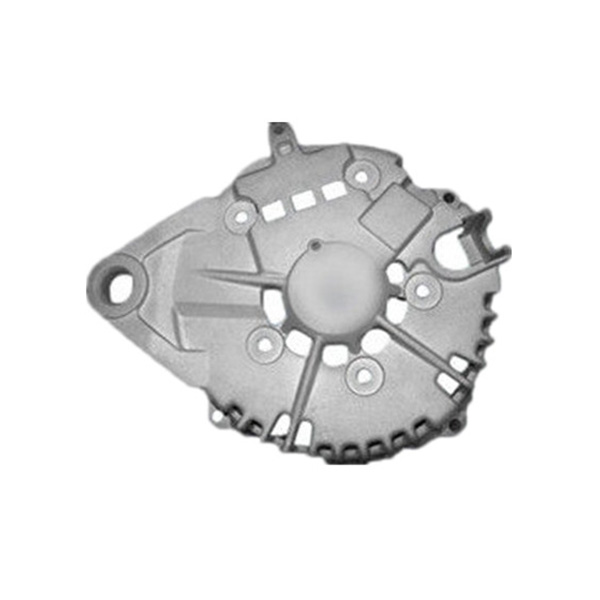Mobile:+86-311-808-126-83
Email:info@ydcastings.com
English
Feb . 16, 2025 13:37
Back to list
impeller in a pump
In the realm of fluid dynamics, the impeller in a pump is more than just a mechanical component; it's the heart of any pumping system, transforming mechanical energy into hydraulic energy with precision. As we navigate the complexities of modern applications, understanding the nuances of impeller design, its role in performance optimization, and its impact on operational efficiency can provide businesses with a competitive edge.
Advanced computational simulations and real-world testing are pivotal in refining impeller designs. These methods, underpinned by experience and experimentation, are employed to predict fluid dynamics accurately, optimize flow patterns, and reduce energy consumption. By simulating various operational scenarios, designers can identify potential issues and implement design alterations that mitigate risks, enhancing the pump’s lifespan and effectiveness. Moreover, maintenance experience plays a crucial role in sustaining impeller performance. Regular inspection and service routines are necessary to identify signs of wear, such as erosion or cavitation. Cavitation, a phenomenon where vapor bubbles form and collapse within the liquid near the impeller, can cause significant damage if not promptly addressed. By employing advanced diagnostic tools and condition monitoring technologies, operators can proactively manage wear and tear, ensuring the pump operates at peak performance. Trust in impeller technology is built over time, rooted in a foundation of proven performance and rigorous testing. Manufacturers must adhere to industry standards and certifications, ensuring their products meet high safety, efficiency, and environmental benchmarks. This trust is further enhanced by transparent communication with end users, where providing detailed impeller specifications and operational data supports informed decision-making. In conclusion, the impeller within a pump is an essential component whose design, material, and maintenance directly affect the efficacy and reliability of the entire system. By leveraging expertise in design, employing cutting-edge simulations, prioritizing maintenance, and building trust through rigorous testing, companies can optimize their pumping systems to meet the growing demands of modern industry. For those seeking to gain a competitive advantage, a deep understanding of impeller technology is not merely beneficial; it is imperative.


Advanced computational simulations and real-world testing are pivotal in refining impeller designs. These methods, underpinned by experience and experimentation, are employed to predict fluid dynamics accurately, optimize flow patterns, and reduce energy consumption. By simulating various operational scenarios, designers can identify potential issues and implement design alterations that mitigate risks, enhancing the pump’s lifespan and effectiveness. Moreover, maintenance experience plays a crucial role in sustaining impeller performance. Regular inspection and service routines are necessary to identify signs of wear, such as erosion or cavitation. Cavitation, a phenomenon where vapor bubbles form and collapse within the liquid near the impeller, can cause significant damage if not promptly addressed. By employing advanced diagnostic tools and condition monitoring technologies, operators can proactively manage wear and tear, ensuring the pump operates at peak performance. Trust in impeller technology is built over time, rooted in a foundation of proven performance and rigorous testing. Manufacturers must adhere to industry standards and certifications, ensuring their products meet high safety, efficiency, and environmental benchmarks. This trust is further enhanced by transparent communication with end users, where providing detailed impeller specifications and operational data supports informed decision-making. In conclusion, the impeller within a pump is an essential component whose design, material, and maintenance directly affect the efficacy and reliability of the entire system. By leveraging expertise in design, employing cutting-edge simulations, prioritizing maintenance, and building trust through rigorous testing, companies can optimize their pumping systems to meet the growing demands of modern industry. For those seeking to gain a competitive advantage, a deep understanding of impeller technology is not merely beneficial; it is imperative.
Next:
Latest news
-
Materials Used in Manufacturing Cap End Pipe FittingsNewsNov.24,2025
-
Material Properties of CF8M CastingNewsNov.24,2025
-
How to Inspect Pump Cap Ends for DamageNewsNov.21,2025
-
Backward Curved Impeller – Efficient Airflow Solutions for Industry | YD CastingsNewsNov.21,2025
-
Automobile Water Pump - Efficient, Quiet, Durable & ElectricNewsNov.21,2025
-
Impeller for Pumps – High-Efficiency, Durable, OEM-ReadyNewsNov.21,2025
Related PRODUCTS











